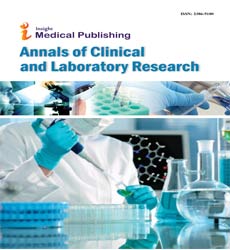Abstract
Efficacy and Safety of Tenofovir and Lamivudine in Late Pregnancy for Preventing Perinatal Transmission of Hepatitis B Virus in Highly Viremic Mothers
Background: Chronic hepatitis B virus (HBV) infection early in the life confers a high risk of chronicity, particularly in children born to highly viremic mothers, due to “viral vaccine breakthrough” phenomenon that could be treated by antivirals such as lamivudine and recently tenofovir.
Objective: We evaluated efficacy and safety of lamivudine and tenofovir in late pregnancy in preventing perinatal transmission of hepatitis B virus (HBV) to infants born to highly viremic mothers.
Materials and Methods: A total of 82 pregnant chronic HBsAg+ women with high viremia (>107 copies/mL) at 32 weeks of gestation were randomly assigned to 2 groups (lamivudine 100 mg or tenofovir 300 mg daily from 8 weeks of prepartum to week 4 postpartum). Infants received recombinant HBV vaccine without HBIg and were followed until week 52.
Results: HBV perinatal trasmission rate, defined by HBsAg presence in children’s blood at week 52, was only 1.2% (1/82). The mean maternal viral load sharply decreased from 5.09 x 108 ± 3.19 x 108 copies/mL at week 32 of gestation to 1.13 x 106 ± 3.91 x 106 at labor (p<0.001). The viral load reduction was stronger in tenofovir-treated mothers than in lamivudine-treated ones (p<0.028), particularly in 4 log10 reduction (p<0.001). No viral resistance to the drugs was noted. Drug adverse events were rare and transient, allowing complete full course in all cases, and flare was seen in no case.
Conclusion: Both lamivudine and tenofovir exhibited a high efficacy in preventing mother-to-child perinatal transmission of HBV and a good safety without viral resistance.
Author(s):
Nguyen Van Bang, Le Thi Lan Anh, Nguyen Thi Van Anh, Nguyen Th Quynh Mai, Vu Tuong Van, Sofiane Mohamed, Philippe Halfon and Marc Bourli?re
Abstract | Full-Text | PDF
Share this

Annals of Clinical and Laboratory Research peer review process verified at publons
Abstracted/Indexed in
- Google Scholar
- Genamics JournalSeek
- China National Knowledge Infrastructure (CNKI)
- CiteFactor
- Directory of Research Journal Indexing (DRJI)
- Publons
- Secret Search Engine Labs
- Euro Pub
Open Access Journals
- Aquaculture & Veterinary Science
- Chemistry & Chemical Sciences
- Clinical Sciences
- Engineering
- General Science
- Genetics & Molecular Biology
- Health Care & Nursing
- Immunology & Microbiology
- Materials Science
- Mathematics & Physics
- Medical Sciences
- Neurology & Psychiatry
- Oncology & Cancer Science
- Pharmaceutical Sciences


